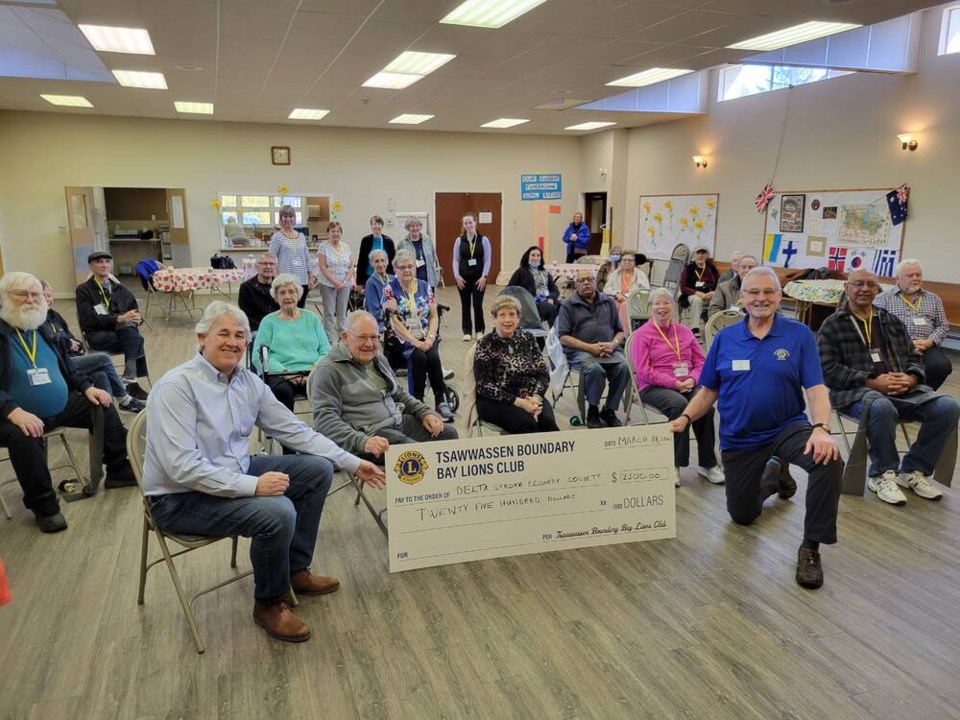Twenty-eight years ago, Tsawwassen resident Karel Ley needed support for her husband after a stroke, but with few resources available, she had to drive to Richmond weekly.
Perceiving the need for support closer to home, Ley eventually placed an ad in the Optimist. She invited stroke survivors and caregivers to a meeting, and Delta Stroke Recovery Society (DSRS) was born.
Today, what started as a coffee club has grown into a registered non-profit, with in-person and on-line programs.
DSRS offers group speech-language pathology led by a registered pathologist.
Certified fitness instructors lead classes for strength, coordination, and secondary stroke risk reduction. Trained volunteers and facilitators lead aphasia conversation groups and programs for cognition.
“We pick up where hospital rehab finishes,” said DSRS president Steve Joyce. “We’ve built a setting for stroke survivors to work on cognition, speech-language skills, and fitness after stroke.”
But the benefit of this group goes far beyond recovery activities.
“This group is incredibly positive and supportive,” he adds. “Every program is a mood-booster for everyone, from members and caregivers to instructors and volunteers.”
Stroke is the leading cause of adult disability in Canada and can be catastrophic, physically, cognitively, and emotionally.
“Our medical system has finite resources for stroke recovery,” he said. “When people finish their public health rehab, they’re still working on their recovery. They need ongoing support to re-enter their lives and the community more fully.”
DSRS partners with After Stroke BC and receives most of its funding from Delta’s service groups and private donors including: Tsawwassen Boundary Bay Lions, Delta Community Foundation, TOOBs, Rotary Club of Tsawwassen, Delta Firefighters Charitable Society, IODE, Cove Links Ladies Golf Club and South Delta Baptist Pickleball Club.
To find out more about the organization visit: www.deltastrokerecovery.com or call 604-834-9239.



